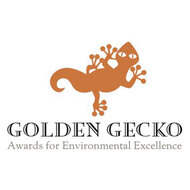Four projects have been announced as eligible for the 2019 Golden Gecko Award
| Date: | Friday, 07 June 2019 |
|---|
Renewable energy, recycling materials and research programs are all aspiring to win the Department of Mines, Industry Regulation and Safety’s 2019 Golden Gecko Award for Environmental Excellence.
Ranging from the innovative use of discarded materials, to setting new standards in renewable energy use and guarding delicate marine environments, the four projects demonstrate a dedication to reducing waste and protecting the environment.
Since 1992, The Golden Gecko Award has recognised outstanding contributions to innovation and environmental outcomes in the resources sector.
The winner of the Golden Gecko Award will be announced at the department's Resources Sector Awards for Excellence on Thursday 22 August, with the Community Partnership Resources Sector Award.
For more information, visit http://www.dmirs.wa.gov.au/excellenceawards
The DeGrussa Solar Project, Sandfire Resources NL
Since commencing in 2016, this project has reduced Sandfire Resources’ carbon emissions at the DeGrussa Copper Gold Mine by 30,789 tonnes and offset the use of 11 million litres of diesel. It is the largest integrated off-grid solar and battery storage facility in Australia.
Exmouth Integrated Artificial Reef, Subcon, BHP, NERA, Recfishwest, Curtin University
Also known as King Reef, this is the largest purpose-built integrated artificial reef in the Southern Hemisphere and the first of its kind in Australia. What makes it so unique is the reef is partially made up of repurposed offshore structures from the oil and gas industry.
Drill Bit Recycling Program, Australasian Mining Services Pty Ltd (AMS)
AMS collects used drill bits and organises transport from mine sites across the Pilbara to their recycling facility to extract tungsten carbide. Since January 2016, AMS in conjunction with Fortescue Metals Group and Roy Hill Holdings has recycled 133,279 kilograms of material and donated $97,857to community groups, the Royal Flying Doctor Service and the Roy Hill Community Foundation.
Dredging Science Node, The Western Australian Marine Science Institution
This collaborative research project will improve the planning and regulation of major dredging operations in Western Australia, nationally and internationally. The project utilises in-depth analysis and applied science to improve confidence in the social, environmental and financial outcomes of major dredging activities associated with construction and expansion projects in the mining, energy and port sectors.

